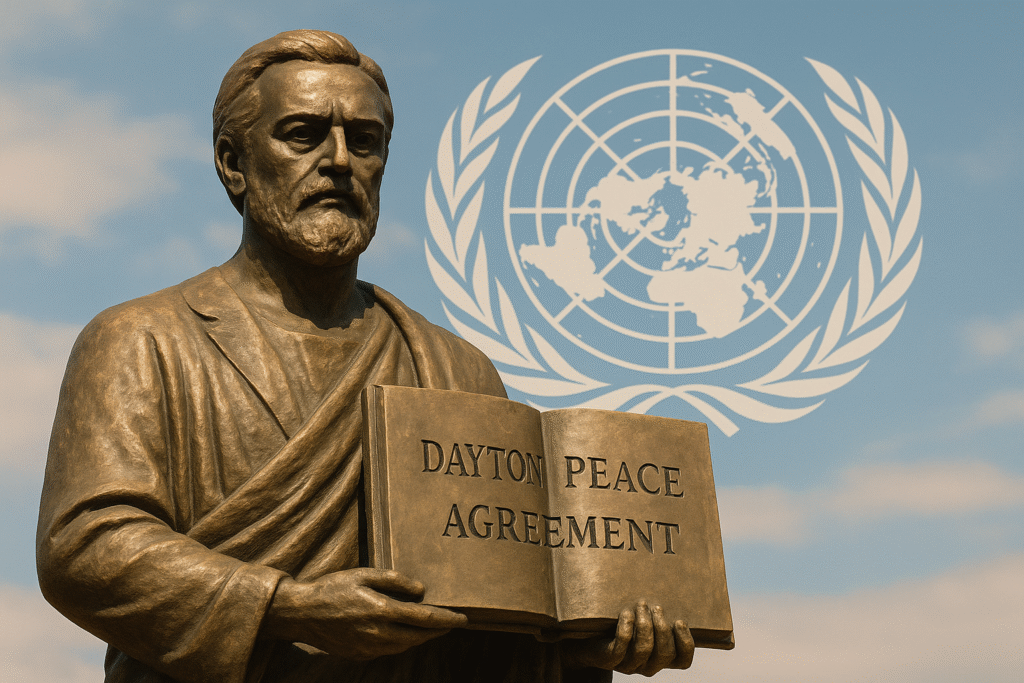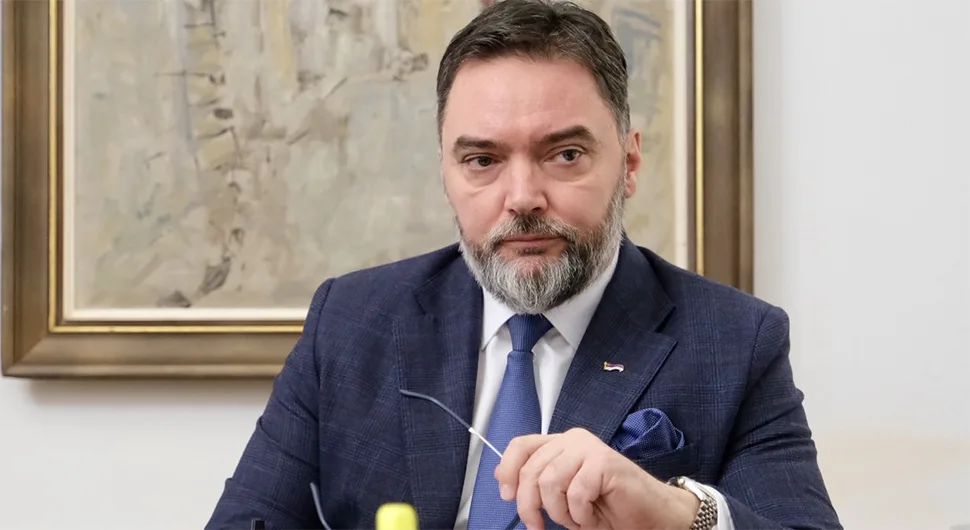Written by: Nemanja Plotan
The current political crisis in Bosnia and Herzegovina is the result of a multitude of factors, but its present-day character has been shaped primarily by the actions of the Office of the High Representative (OHR)—a fact underscored by my personal encounter with Wolfgang Petritsch in Vienna in May 2024.
The root of instability
In March 2024, the European Union approved the opening of accession negotiations with Bosnia and Herzegovina. For a moment, optimism prevailed, and there was a widespread belief that BiH had finally set out on the path of political progress—the “promised land” seemed within reach. To examine whether this optimism was warranted or misguided, the Austrian Institute for European and Security Policy and the International Institute for Peace jointly organized a panel discussion in May 2024.
For nearly two hours, panelists cited Brussels’ enlargement fatigue, Milorad Dodik’s inflammatory rhetoric, and close relations with Russia and China—fostered by both Dodik and Aleksandar Vučić—as major obstacles to BiH’s EU path. However, what especially marked this gathering was the presence of former High Representative Wolfgang Petritsch.
Petritsch is remembered as the first High Representative to systematically and fully exercise the so-called Bonn Powers. He is often mentioned in the context of the imposed Election Law of 2001 and constitutional amendments from 2002. Croatian politicians resent him most for the removal of Ante Jelavić and the raid on the Herzegovina Bank, while Serb politicians accuse him of violating the Dayton-mandated autonomy of the entities and selectively enforcing policies. During his mandate, he dismissed 72 elected officials—primarily Serbs and Croats. Not a single high-ranking figure from the SDA or other major Bosniak parties was removed, for which he has frequently been criticized as favoring Bosniak politics.
This perception was reinforced during Petritsch’s interaction with a group of students from BiH, myself among them, during the informal conversation following the panel. Approaching the group—mistaking us for exclusively Bosniak students—Petritsch arrogantly asked: “Where is my statue?”, alluding to the statue of Bill Clinton erected by Kosovo Albanians. Seeing the students confused—either not recognizing him or surprised by his tone—he continued: “I created your state!”
Though it’s human for individuals in their later years to reflect on their legacy, it is clear that Wolfgang Petritsch does not see himself merely as a former High Representative, but as a state-building figure who shaped politics in the Balkans. And therein lies the essence of BiH’s ongoing political instability.
It may be futile to speculate on the intentions of Petritsch and other High Representatives—only they know in whose interest and with what motives they wielded the Bonn Powers. However, nearly thirty years after the Dayton Peace Agreement was signed, the role of the High Representative was supposed to be that of a stabilizer and conflict-preventer. Yet today, BiH is once again in turmoil—fighting itself.
An artificial identity
The interpretation and implementation of the Dayton Peace Agreement simultaneously act as both glue holding BiH together and a poison that corrodes it from within. The central debate—fueling most political conflict in the country—is whether Dayton was a final solution or merely a transitional peace accord.
Annex 10 of the Dayton Agreement established the Office of the High Representative, originally tasked with “overseeing the implementation of the peace agreement.” In other words, the role was meant to be supervisory, coordinative, and mediatory.
However, this role drastically changed after the 1997 Bonn Conference, when the High Representative was granted authority to impose laws and remove elected or appointed officials deemed to be obstructing the peace process.
With these new powers, the OHR began reshaping BiH’s political landscape according to its own vision—disregarding the democratic will of its citizens. Over 900 decisions and 430 laws were imposed unilaterally, often to the detriment of Serb and Croat political interests.
The mindset and actions of High Representatives were perhaps most vividly expressed by British diplomat and fourth High Representative Paddy Ashdown, who once said of the Dayton Agreement: “It was an excellent agreement to end the war, but a very bad one for building a state.” Acting on this belief, Ashdown once dismissed 60 Serb officials in a single day—directly undermining the democratic will of voters in Republika Srpska. Through such interventions, BiH became a de facto international protectorate with an imposed governor—reminiscent of the Austro-Hungarian annexation of Bosnia and the autocratic rule of administrator Benjamin Kállay.
Much like Kállay’s attempt to forge a unified Bosnian identity, the OHR tried to create a new Bosnian identity by imposing laws such as the Flag Law and the National Anthem Law. These artificially created state symbols, lacking historical foundation, today symbolize a society deeply divided by irreconcilable identity differences.
While the international community had the opportunity to create conditions for resolving problems through political dialogue, it chose instead to wield political force through the OHR—now one of the primary sources of political instability.
The legacy of the High Representatives serves as a stark reminder of the dangers of autocratic rule, but also as a testament to the importance of respecting democratic processes and the majority will of the country’s constituent peoples. While political consensus across all of BiH may be difficult to achieve, full respect for every letter of the document that brought peace must be unequivocal—not only by BiH citizens, but especially by the High Representative himself.
Though BiH is ripe for political, economic, and judicial reform, true change can only come through the political responsibility of its constituent peoples—not the whims of a single unelected official.
Source: Glas Srpske









